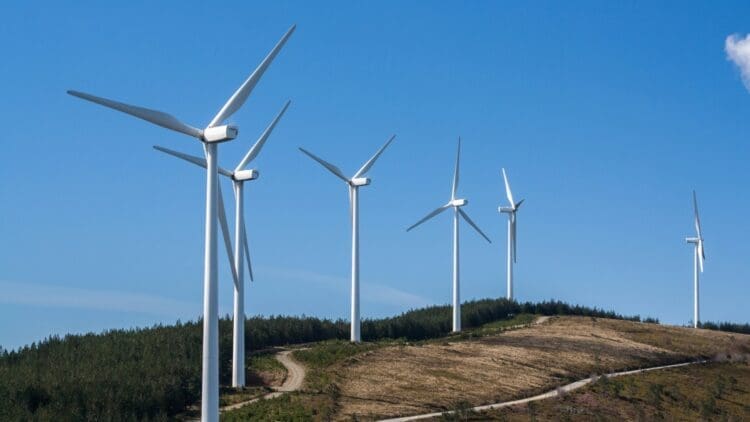In a move that strengthens the renewable energy sector, Germany has commissioned 12.9 MW wind farm in the Rhineland-Palatinate region. Germany is among the most forward-thinking nations in the world, which has exceedingly high standards for the decarbonization of the energy sector. As the world transitions the energy sector away from fossil fuels, which have finally reached the limit for producing energy as a result of negative impacts on the environment, the global consensus of placing more importance on the renewable energy sector has been exemplified by Germany.
German energy giant has commissioned the wind farm in the Rhineland-Palatinate region
Germany is among the highest energy-consuming nations in the world. As such, the German government is fast-tracking progress in the renewable energy sector.
German energy giant RWE has announced that it has commissioned a massive 12.9 MW wind farm in the Rhineland-Palatinate region. This strengthens the standing of the renewable energy sector in the nation and further afield as well. The aforementioned site is known as the Kail facility, and consists of three wind turbines that are capable of generating electricity for 7,500 households each year.
RWE secured the rights to develop the Kail facility in Rhineland-Palatinate during Germany’s onshore wind tender in February 2024. The 12MW Kail project is on the Moselle plateau, around 31 miles south-west of Koblenz, and took roughly 12 months to complete. During the construction phase, specific focus was placed on environmental and resource efficiency, as well as reusing materials and maintaining close coordination with environmental watchdogs.
RWE saw its EBITDA fall during the first half of the year
The company noted that its EBITDA, or Earnings Before Interest, Taxes, Depreciation, and Amortization, fell to $2.49 billion in the first half of 2025 from $3.3 billion a year earlier. Underlining the unfavorable wind conditions in Europe at the time.
RWE embraced cooperation with local environmentalists during the construction phase
A result of the global narrative that is calling for reforming the energy sector is that careful cooperation has been fostered by energy companies and local environmental watchdogs. The Kail facility even got some visitors from local schools that aimed to educate the youth of the nation in the renewable energy sector, hoping to spark interest in future energy engineers.
RWE’s leadership, specifically the company’s CEO, Katja Wunschel, praised the cooperative nature that the project displays, noting that the achievement reflects “excellent cooperation” among local authorities, landowners, farmers, and RWE’s team.
Additionally, she noted that the project “supports our commitment to the expansion of renewables and creates significant added value for the region”. She also added that neighboring communities will receive an annual contribution of up to $69 454 from energy generation revenues. The wind sector is growing at an exponential rate, as evidenced by the recent news that Africa’s biggest wind farm has been completed in Egypt.
The world’s leaders have urged the need to transition to wind power as an untapped resource in the energy sector.
“We simply have to transition from an economy based almost exclusively on oil and coal and natural gas to one that’s far more diversified, that uses solar energy, and wind energy, and the power of the tides, and biomass energy, and, eventually, develops hydrogen” – Former US President Bill Clinton
Europe has an agnostic approach to the potential that wind power presents
While the news that RWE has commissioned the Kail facility in Germany is promising for the sector, other European nations are not that certain. The United Kingdom has seen its AR7 offshore wind round being subjected to review by a government watchdog. Germany is attempting to accelerate the transition in the country towards the renewable energy sector, and the facility in the Rhineland-Palatinate region has the potential to shift the market successfully into the future of the sector.






